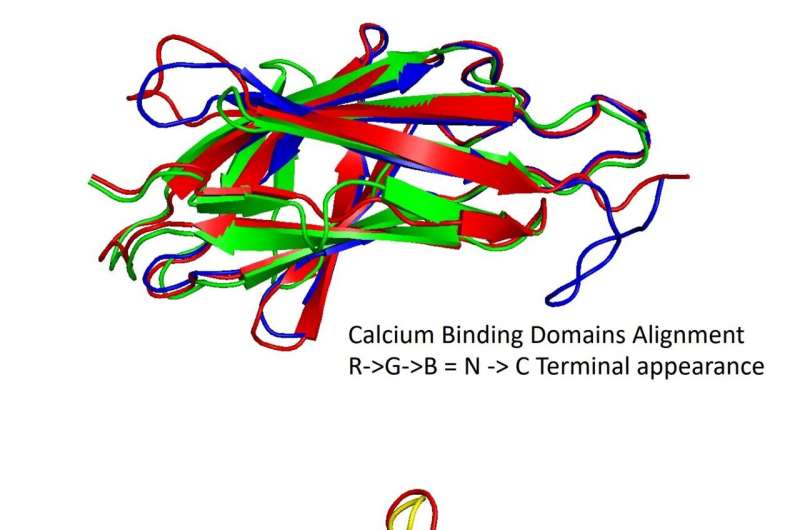Infection
Researchers discover new method to inhibit cholera infection
Recent research investigates a novel strategy for inhibiting the spread and infection of Vibrio cholerae, the bacteria responsible for the disease, cholera.
The research article is titled, “A peptide-binding domain shared with an Antarctic bacterium facilitates Vibrio cholerae human cell binding and intestinal colonization” and was recently published by The Proceedings of the National Academy of Sciences.
V. cholerae is found naturally on various surfaces within marine environments. When water or food contaminated with V. cholerae is consumed by humans, it colonizes the gastrointestinal tract and causes cholera.
According to the Centers for Disease Control and Prevention, cholera is an intestinal infection that causes diarrhea, vomiting, circulatory collapse and shock. If left untreated, 25 to 50% of severe cholera cases can be fatal. Cholera is a leading cause of epidemic diarrhea in parts of the world and the World Health Organization (WHO) estimates up to four million people are infected each year.
Karl Klose, director of The South Texas Center for Emerging Infectious Diseases (STCEID) and the Robert J. Kleberg, Jr. and Helen C. Kleberg College of Sciences Endowed Professor, coauthored the research article with Cameron Lloyd, a UTSA doctoral student who graduated in August with a Ph.D. in molecular microbiology and immunology.
Lloyd was the primary author and completed the article as his thesis project under the advisement of Klose, who has been studying the pathogenic mechanisms of V. cholerae for 30 years. Lloyd worked in Klose’s laboratory for five years.
He learned how to study V. cholerae, genetically manipulate the bacteria, and measure its ability to spread disease, bind to red blood cells and form biofilms, which are surfaces where communities of bacteria form that are more resistant to antibiotics. Lloyd is currently interviewing for several postdoctoral fellowship positions in laboratories across the nation.
“By taking advantage of the structural similarities of functional domains in two large adhesins [cell-surface components or appendages of bacteria that facilitate adhesion to other cells, usually in the host they are infecting or living in] produced by two different organisms, we were able to characterize an effective inhibitor to intestinal colonization and biofilm formation,” said Lloyd.
In collaboration with the laboratories of Peter Davies, Canada research chair in Protein Engineering and professor of biomedical and molecular sciences at Queens University, Canada, and Ilja Voets, professor of chemical engineering and chemistry at Eindhoven University, Netherlands, Lloyd and Klose successfully identified a peptide, a short chain of amino acids that make up proteins, that can inhibit the virulence of V. cholerae.
They discovered that the peptide inhibiters that bind to Marinomonas primoryensis, an Antarctic bacterium that sticks to microalgae in a similar manner to how V. cholerae sticks to human intestines, can also disrupt V. cholerae from adhering to human cells, forming biofilms and colonizing the gastrointestinal tract.
“We demonstrated that these peptide inhibitors could inhibit both biofilm formation as well as intestinal colonization by V. cholerae,” said Klose. “It is possible that this could be part of intervention strategies to inhibit these bacteria from causing disease and persisting in the environment.”
The Klose Lab is a part of The South Texas Center for Emerging Infectious Diseases (STCEID) and specializes in studying how bacteria cause disease. The lab has worked most extensively with V. cholerae and Francisella tularensis, the bacterium that causes tularemia, or rabbit fever.
STCEID researchers specialize in the study of infectious diseases and form one of the premier centers for this type of research in the nation. The Center connects state-of-the art facilities with the diverse expertise of its faculty to cultivate an environment that answers critical questions relating to emerging and bioweapon-related diseases.
The facilities and faculty at the Center also serve an important role in providing hands-on training to undergraduate and graduate students who intend to pursue careers in science and technology.
“This project and others like it have equipped me with an in-depth knowledge of molecular biology, coding, and high throughput data analysis,” said Lloyd.
“Our graduate students that come to UTSA to get Master’s and Ph.D. degrees are in the best place to study infectious diseases,” added Klose.
More information:
Cameron J. Lloyd et al, A peptide-binding domain shared with an Antarctic bacterium facilitates Vibrio cholerae human cell binding and intestinal colonization, Proceedings of the National Academy of Sciences (2023). DOI: 10.1073/pnas.2308238120
Provided by
University of Texas at San Antonio
Citation:
Researchers discover new method to inhibit cholera infection (2023, November 7)
retrieved 7 November 2023
from https://phys.org/news/2023-11-method-inhibit-cholera-infection.html
This document is subject to copyright. Apart from any fair dealing for the purpose of private study or research, no
part may be reproduced without the written permission. The content is provided for information purposes only.

